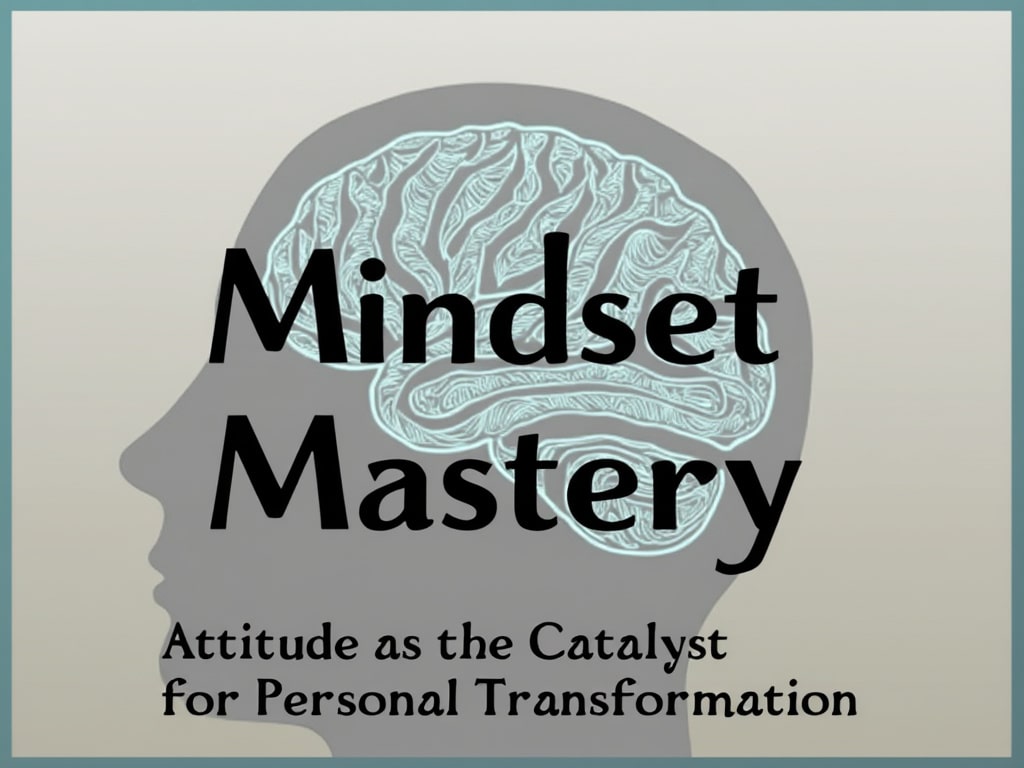Alex Becker, claiming a net worth approaching multi-nine figures, argues that achieving significant wealth and success boils down to adopting specific principles and a particular mindset. He asserts that these principles, though sometimes counterintuitive or harsh, are highly effective. He emphasizes that conventional paths often lead to mediocrity and that true success requires a different approach focused on leverage, risk, focus, and a specific understanding of how to manage one’s own mind and efforts.
🏛️ Core Principles for Success
These are the foundational principles Becker identifies as crucial:
- Everything Is Your Fault:
- Take absolute ownership of everything that happens in your life, both good and bad.
- Avoid a victim mentality; blaming others removes your control over the situation.
- Using the drunk driver analogy: while the drunk driver is legally at fault, focusing on your own decisions (driving late, not looking carefully) allows you to learn and potentially avoid similar situations in the future.
- This mindset forces you to think ahead and strategize to avoid negative outcomes and trigger positive ones.
- Volume Overcomes Luck:
- Success isn’t primarily about luck, especially in business.
- Consistently putting in high volume of effort (e.g., 10-12 hours a day for years) inevitably leads to skill development and results.
- If you take enough shots (e.g., try enough business ideas with full effort), one is statistically likely to succeed, overcoming the need for luck.
- Embrace Being Cringe:
- Accept that the initial stages of learning or starting anything new will be awkward, embarrassing, and “cringe”.
- Becker cites his own early videos, jiu-jitsu attempts, and guitar playing as examples.
- Willingness to look bad, be judged, and make mistakes is essential for growth and achieving mastery.
- Fear of looking like a beginner or being judged prevents most people from starting or persisting.
- Consider this willingness a “superpower”; putting yourself out there forces rapid learning and improvement.
- Get Rich From Leverage (Not Just Hard Work):
- Hard work alone doesn’t guarantee wealth; leverage multiplies the impact of your efforts.
- Types of Leverage:
- Assets: Owning assets (like a business) that generate value or appreciate.
- Systems/Delegation: Building systems and hiring people so your decisions or processes are executed by others, multiplying your output. Example: Training a sales team vs. making calls yourself.
- Capital: Using money (often borrowed against assets) to acquire more assets or invest.
- Focus work efforts on activities that build leverage, not just repeatable low-leverage tasks.
- This is the key to working fewer hours while making significant money (the “one hour a week” concept) – build leverage, then delegate its management.
- Understand and Take Calculated Risk:
- Avoiding risk is the surest way to guarantee failure or mediocrity. Almost all success comes from taking risks.
- Structure your life to enable risk-taking. This primarily means keeping personal expenses extremely low, so failures don’t ruin you.
- View risk-taking as a skill that improves with practice. Each attempt, even failures, provides learning for the next.
- The reward potential in business/wealth creation often vastly outweighs the downside if you can take multiple shots. Position yourself to be a “chronic risk taker”.
- Don’t Stay In Your Comfort Zone:
- Comfort leads to stagnation at every level of success.
- People plateau (e.g., at a comfortable job, or even at $2M/year income) because they become unwilling to take new risks or face discomfort.
- Continuously ask yourself if you are comfortable; if yes, you need to push yourself into something challenging or scary to grow. Time is limited for taking big swings.
- Sacrifice Ruthlessly:
- “If you fail to sacrifice for what you care about, what you care about will be the sacrifice”.
- Audit your life: identify activities, possessions, habits, and even relationships that don’t align with your core goals.
- Cut out the non-essentials ruthlessly (e.g., mediocre friendships, time-wasting hobbies, bad habits like excessive drinking or video games).
- Prioritize work over social life, especially early on. Becker argues most early-life friendships fade anyway, and financial stability enables better long-term relationships.
- Reject the justification of “living a little” for habits that hold you back; often these are just dopamine traps or addictions.
- Live poorly initially to free up time and resources to invest in yourself and your goals.
- Focus: One Thing is Better Than Five:
- To achieve exceptional results and beat competitors, intense focus on one primary objective is necessary.
- Splitting focus leads to mediocrity in multiple areas (Tom Brady analogy).
- Most highly successful people (billionaires) achieved their wealth through one primary business or endeavor. Identify your main thing and say no to almost everything else.
- Enjoy the Process (The Game Itself):
- Peak happiness often arrives relatively early in the wealth journey (e.g., when bills are comfortably paid). More money doesn’t proportionally increase happiness.
- Find fulfillment in the process of learning, growing, and playing the “game” of business or skill acquisition, much like leveling up in a video game.
- Avoid “destination addiction” – thinking happiness will only come upon reaching a specific goal.
- Recognize the ultimate pointlessness (in the grand scheme of mortality) allows you to define the point as enjoying the journey itself.
💰 Specific Wealth Building Strategy: Equity over Income
Becker advocates focusing on building equity (the value of your assets, primarily your business) rather than maximizing income.
- Problem with Income: High income is heavily taxed, and much is often spent on lifestyle or agents/expenses, reducing actual wealth accumulation (Dak Prescott example). Pulling profits as income also starves the business of capital needed for growth.
- Equity Focus:
- Reinvest profits back into the business to fuel growth.
- This growth increases the valuation (equity) of the business, often at a multiple (e.g., $1 reinvested might add $5 to the valuation).
- Growth in business value (equity) is typically unrealized capital gains and not taxed until sale.
- Live off a small salary or, more significantly, borrow against the business equity for living expenses or investments. Loans are generally not taxed as income.
- This creates a cycle of reinvestment, equity growth, and tax-advantaged access to capital.
- If the business is eventually sold, it’s often taxed at lower long-term capital gains rates.
🧠 Mindset and Execution
Beyond the core principles, Becker stresses several mindset shifts:
- Be Unbalanced: Accept and embrace periods of extreme imbalance, prioritizing goals (especially financial stability) over a conventionally “balanced” life filled with mediocrity.
- Value Specific Opinions: Only heed advice from people who have demonstrably achieved what you aspire to achieve. Ignore opinions from parents, friends, or the general public if they haven’t reached those goals.
- Strategic Arrogance/Confidence: Reject forced humility. Cultivate strong self-belief and confidence (backed by work and sacrifice) as it fuels risk-taking and ambitious action. Frame life as a game where a confident “main character” mindset is more fun and effective, while acknowledging the ultimate lack of inherent superiority.
- Embrace Dislike: Don’t fear being disliked or misunderstood, especially by those outside your target audience. Controversy can be effective marketing (Brian Johnson example).
- Value Simplicity: Prioritize clear, simple thinking and communication over complex jargon that often masks a lack of results (contrasting Steve Jobs/Hormozi with “midwits”).
- Ruthless Prioritization of Time/Focus: Be extremely protective of your time and mental energy. Say no often and don’t apologize for prioritizing your core objectives over others’ demands.
⚙️ The Engine: Optimizing Your Brain (The Sim Analogy)
Becker argues the primary obstacle to achieving goals is the inability to consistently direct one’s own brain and actions. He suggests treating the brain like a Sim you need to program, optimizing three key areas through removal:
- Energy (Brain Health):
- Remove: Bad food (sugar, inflammatory foods), poisons (alcohol, pot), poor sleep habits.
- Add/Optimize: Clean diet (plants, meat, simple carbs), adequate sleep, exercise.
- Result: Increased physical and mental energy, reduced brain fog.
- Focus:
- Remove: All non-essential distractions. This includes financial stress (by drastically lowering living costs), unnecessary social obligations (friends, excessive family time), non-productive hobbies, politics, mental clutter (chores, complexity).
- Result: Ability to direct mental resources intensely towards the primary goal.
- Motivation (Dopamine Management):
- Understand: The brain seeks the easiest path to dopamine/reward and doesn’t prioritize long-term benefit. Modern life offers many “shortcuts” (video games, porn, social media, junk food, TV) that provide high dopamine with low effort.
- Remove: These dopamine shortcuts. Smash the TV/game console, delete social media apps, block websites, eliminate junk food.
- Result: By removing easy dopamine sources, the brain’s reward system recalibrates. Productive work and achieving goals become the most stimulating and rewarding activities available, making motivation natural rather than forced. Embrace the initial boredom until the baseline resets.
By systematically optimizing energy, focus, and motivation through removal, Becker claims you can transform yourself into a highly effective individual capable of achieving ambitious goals.
🚀 Practical Starting Advice
- Just Start: Don’t get paralyzed by picking the “perfect” business. Start something. Skills learned are often transferable, and you’ll discover what works for you through action.
- Find Breakage: Look for inefficiencies or problems in existing markets where businesses are losing money or customers are underserved. Solving these “breakage” points creates valuable opportunities.
- Niche Down: In saturated markets, focus on a specific, underserved niche where you can become the best provider.




